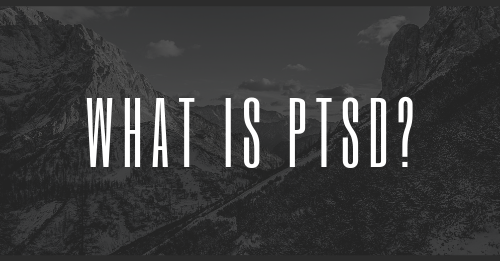Are you — or someone you love — struggling with the aftermath of a traumatic event? When someone has experienced or witnessed a frightening situation, feelings of fear and stress are normal. Sometimes, however, these initial reactions don’t go away after the event. In fact, they can become worse over time, leading to panic, anxiety and recurring trauma. Post-traumatic stress disorder can have long-term negative effects on a person’s life — but dealing with it alone isn’t the only option.
To help you or a loved one take the next steps to Recovery, here’s everything you need to know about PTSD.
Understanding PTSD
As a psychiatric disorder that occurs in people who witness trauma, post-traumatic stress disorder (PTSD) can happen to anyone of any age.
Unfortunately, trauma is not a rare occurrence. About 60% of men and 50% of women will experience one or more severely distressing events in their lifetimes, and seven to eight percent of the population will develop PTSD at some point. The disorder goes beyond normal, immediate feelings of distress and shock — the mental effects and symptoms can continue for months or years, interfering with the person’s relationships, professional life, social life and day-to-day mental health. PTSD can lead to other mental conditions as well, including anxiety and depression.
What Causes PTSD?
While the condition was referred to as “shell shock” in the past and was associated mostly with combat, health professionals now understand that any disturbing experience can lead to PTSD. Common traumatic events that trigger PTSD can include:
- A natural disaster
- Rape or sexual assault
- Personal assault or violence
- Terrorist acts
- A serious accident
- Combat or war
- Witness to death or injury
- Personal injury
Direct physical exposure to trauma is more likely to lead to this mental condition, but indirect exposure or emotional trauma can also be the cause. For example, hearing about a loved one’s trauma, being diagnosed with a medical condition, experiencing emotional abuse or living in a dysfunctional situation can all potentially lead to PTSD development.
Symptoms and Signs of PTSD
While everyone reacts to and experiences PTSD differently, the most common PTSD symptoms include:
- Intrusive psychological symptoms: People struggling with this condition usually experience flashbacks, involuntary memories, nightmares and other intrusive psychological occurrences.
- Physical symptoms: Racing heartbeat, agitation, fatigue, difficulty concentrating, insomnia and aches and pains are a few of PTSD’s physical manifestations.
- Negative feelings: Those who have witnessed a traumatic event often feel intense shock, disbelief, confusion, denial, fear, anxiety, shame, sadness, guilt, self-blame, emotional disconnection or other negative emotions.
- Reactive symptoms: People with PTSD are often on edge, easily startled, irritable, angry and prone to overreactions, outbursts and self-destructive behavior.
- Avoidance: Avoiding people, activities, places, situations and other factors that remind the individual of trauma are typical PTSD behaviors.
How to Help Someone With PTSD
The first thing to remember about post-traumatic stress disorder — whether it’s you or a loved one who is struggling — is that it’s not the individual’s fault. PTSD is a normal reaction to an abnormal trauma or intensely distressing situation, and it can sometimes cause people to withdraw from friends, family and their everyday lives. It can even lead to self-harming behaviors like addiction.
Here at 7 Summit Pathways, we know how hard it can be to live with this condition — and we’re here to offer the path to Recovery. Some individuals turn to drugs our alcohol to handle their PTSD, and we can help separate the addiction from the underlying cause in helping patients with their Recovery. With our dual diagnosis treatment, our experienced team of medical professionals develops a customized treatment plan for every individual’s needs.
Don’t live in the dark — contact us today or schedule an appointment to learn more about our treatment options.

